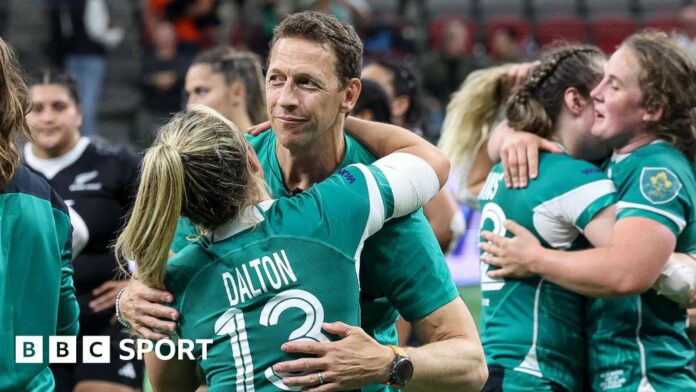
[ad_1]
As results and performances took a turn for the worse, events off the pitch have often been chaotic in recent years, with a sometimes fraught relationship between elite players and some administrators.
In February 2020, the IRFU issued an apology to Wales women after they were forced to have cold showers following their loss to Ireland in the Six Nations.
Later, in September 2021, as the effects of the Covid-19 pandemic were still being felt, the governing body launched a review after Ulster and Connacht players at a women’s interprovincial match in Dublin had to get changed beside bins.
Covid guidelines in place at the time meant that women’s rugby was not classified as ‘elite’ sport so the changing rooms at Energia Park were not open.
Controversy raged two months after as IRFU chief executive Philip Browne re-emphasised the organisation’s commitment to the women’s game, while acknowledging that structures needed to be addressed after Women’s rugby director Anthony Eddy was criticised by current and former players for insisting the 15-a-side game had not been overlooked.
Ireland front row Cliodhna Moloney famously likened Eddy’s comments to “slurry spreading” as relations between many Ireland squad members and a section of the sport’s leading administrators deteriorated.
In December of that year, a large group of past and present Irish rugby players escalated their grievances as they were signatories of a letter to the Irish Government expressing a loss of “all trust and confidence in the IRFU”.
The letter requested government support in enacting “meaningful change” in the women’s game in Ireland.
In response, the IRFU said it “refuted the overall tenor of the document” and was disappointed by the timing of it.
A report published a year later saw the IRFU commit 1m euros to boost facilities and pathways development in the women’s game following an independent review.
[ad_2]
Copyright for syndicated content belongs to the linked Source link

